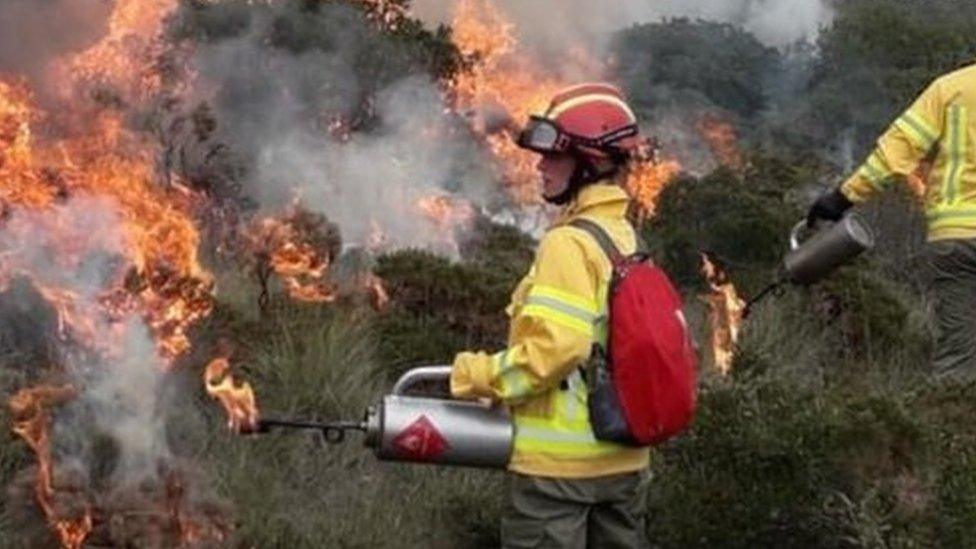Firefighting father calls for cancer tests for crews
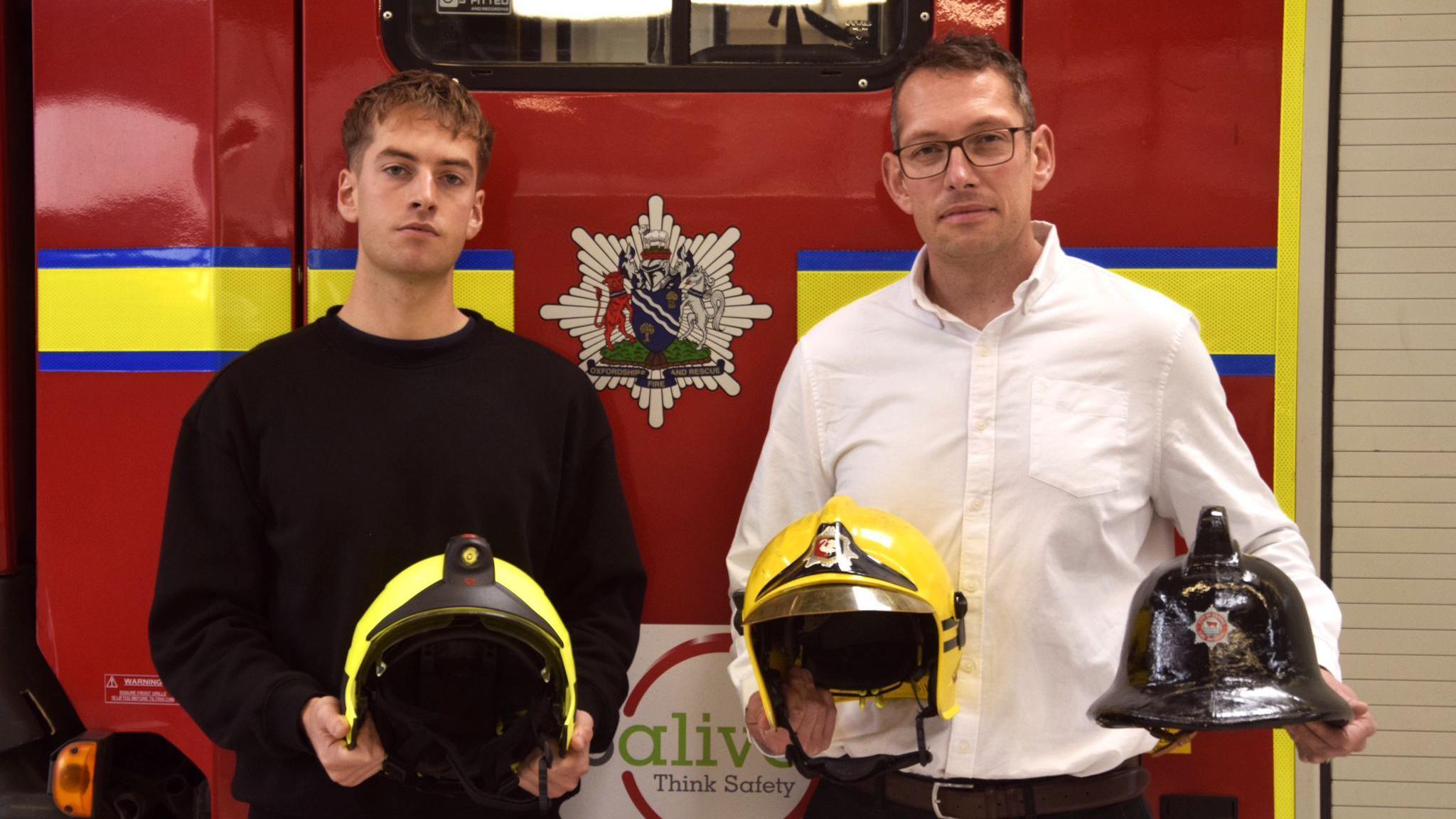
Steve Wright said he was passionate about protecting his son Ben and other young firefighters
- Published
Fire crews should be given annual cancer screenings because of their increased risk of the disease, a firefighting father has said.
Steve Wright's own father died of cancer in 2018, following a long career with the fire service in Oxfordshire.
Mr Wright, an executive council member of the Fire Brigades Union (FBU), said his concern was heightened when his son joined the profession earlier this year.
In 2022, a UK study found firefighters had an increased risk of cancer due to chemical exposure, external. A Home Office spokesperson said the health and safety of firefighters was "of paramount importance".
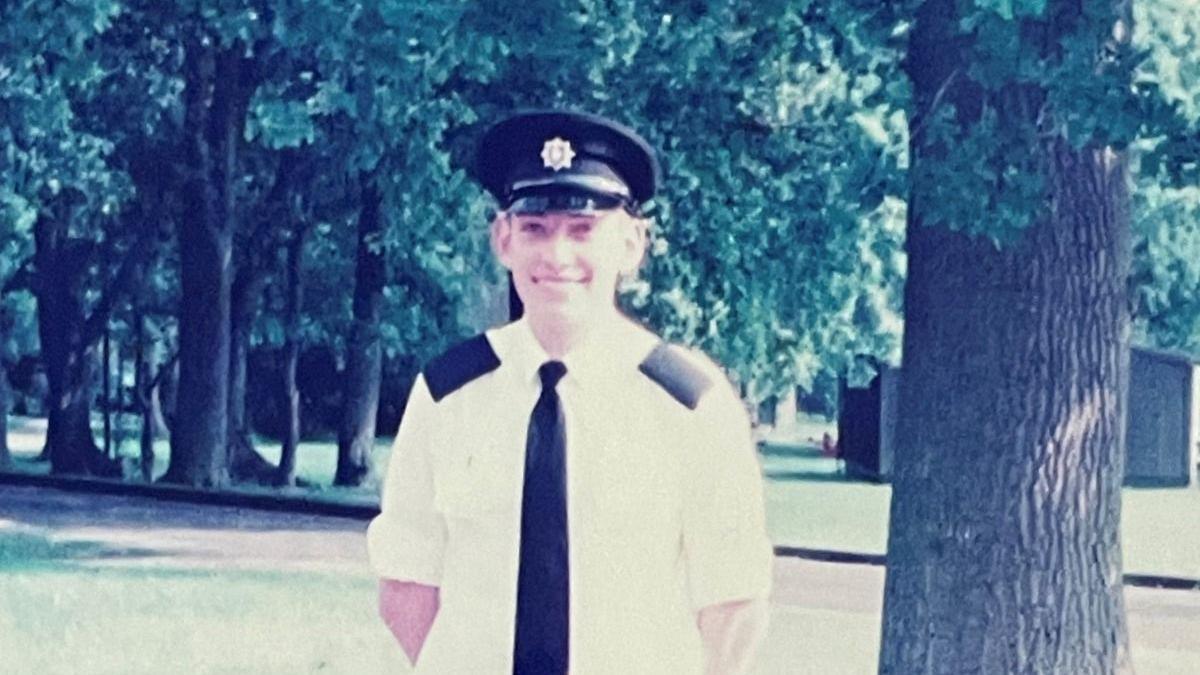
Steve joined the fire service when he was 18
Steve Wright said: "We know that they attend dangerous incidents, we know that they put themselves at risk, but it's around this cancer issue that is still present and we know we need to do more to reduce that.
"That drives me on, that's my passion - to make sure that Ben and his colleagues are better protected.
"It may be too late for people of my generation who joined over 20 years ago, but it's the next generation of firefighters that we need to protect and make sure we have everything in place."
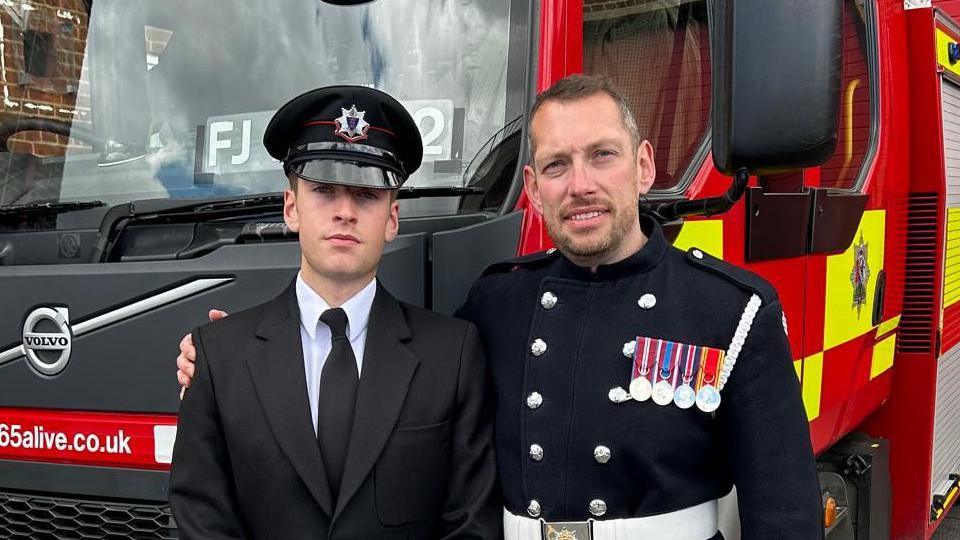
Ben Wright (left) said the fire service had "come a long way" in improving safety
The World Health Organisation previously declared firefighting to be a carcinogenic job, external.
Alongside annual cancer screening, the FBU is calling for improved decontamination procedures.
It has also demanded a legal change to make firefighting the presumed cause of firefighters' cancer, paving the way to greater compensation and protection.
It said similar policies were already in force in countries including the United States, Australia and Poland.
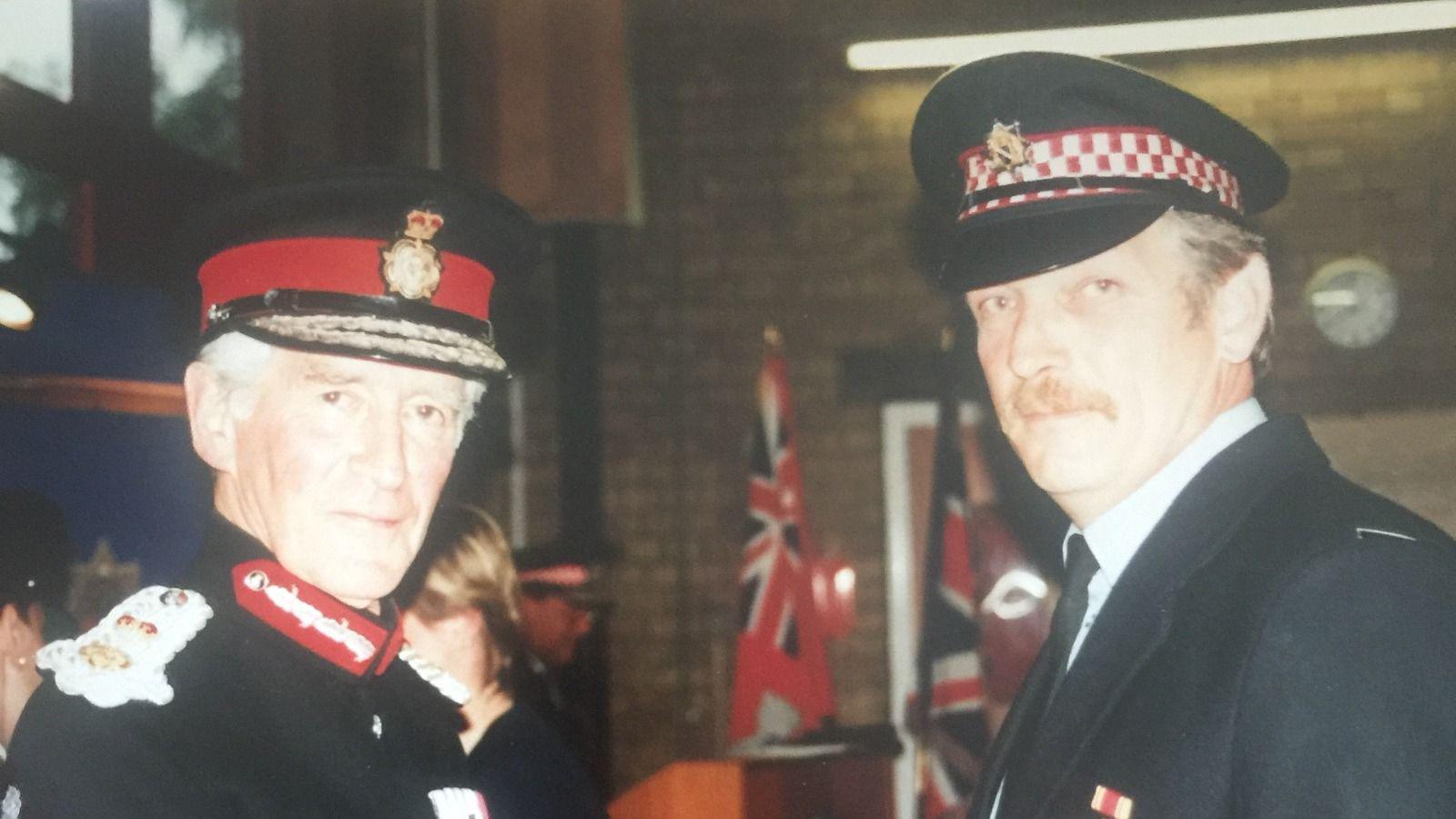
Steve's father Nick was a firefighter based around Oxfordshire
Ben Wright, who is based in Caversham, Berkshire said the fire service had "come a long way" in terms of protective measures.
"But there's definitely more that needs to be put in place so we can be safer going into jobs day in day out," the 20-year-old added.
Oxfordshire Fire & Rescue Service said protection from contaminants was of the "utmost importance".
Assistant chief fire officer Mike Adcock said: "When I joined 29 years ago... the fire station would smell of smoke. That isn't the case nowadays.
"We ensure that our firefighters shower appropriately. We leave dirty fire kit outside the fire station. We are looking at putting our breathing apparatus sets outside of our crew cabs."
A Home Office spokesperson said: "We regularly review and discuss relevant research findings with the National Fire Chiefs Council and Health and Safety Executive to identify and implement improvements to safety measures when necessary.
"Overall, fire and rescue authorities will receive around £2.87bn in 2024/25.
"The deployment of resources is determined by each authority, based on their assessment of local risks and circumstances."
Get in touch
Do you have a story BBC Oxfordshire should cover?
You can follow BBC Oxfordshire on Facebook, external, X (Twitter), external, or Instagram, external.
- Published24 April 2023
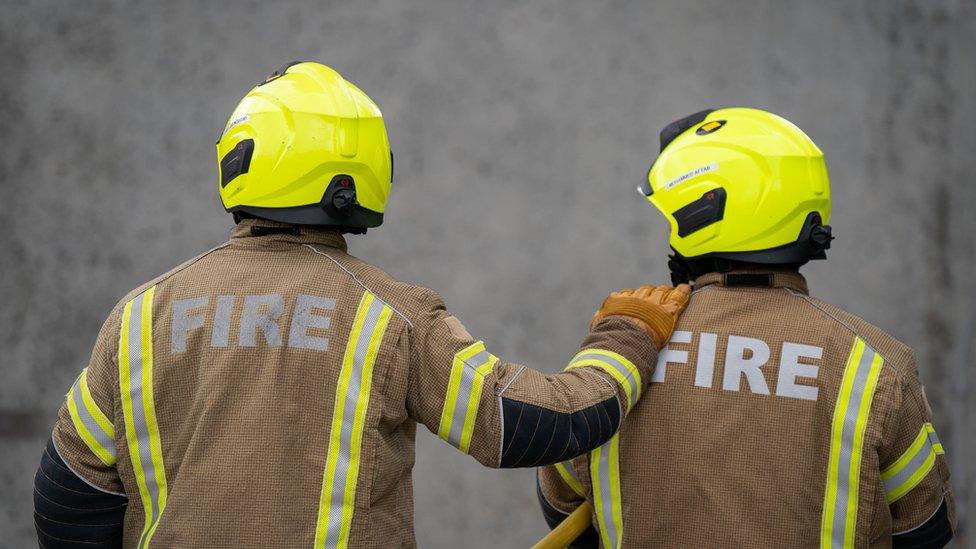
- Published7 September 2021
